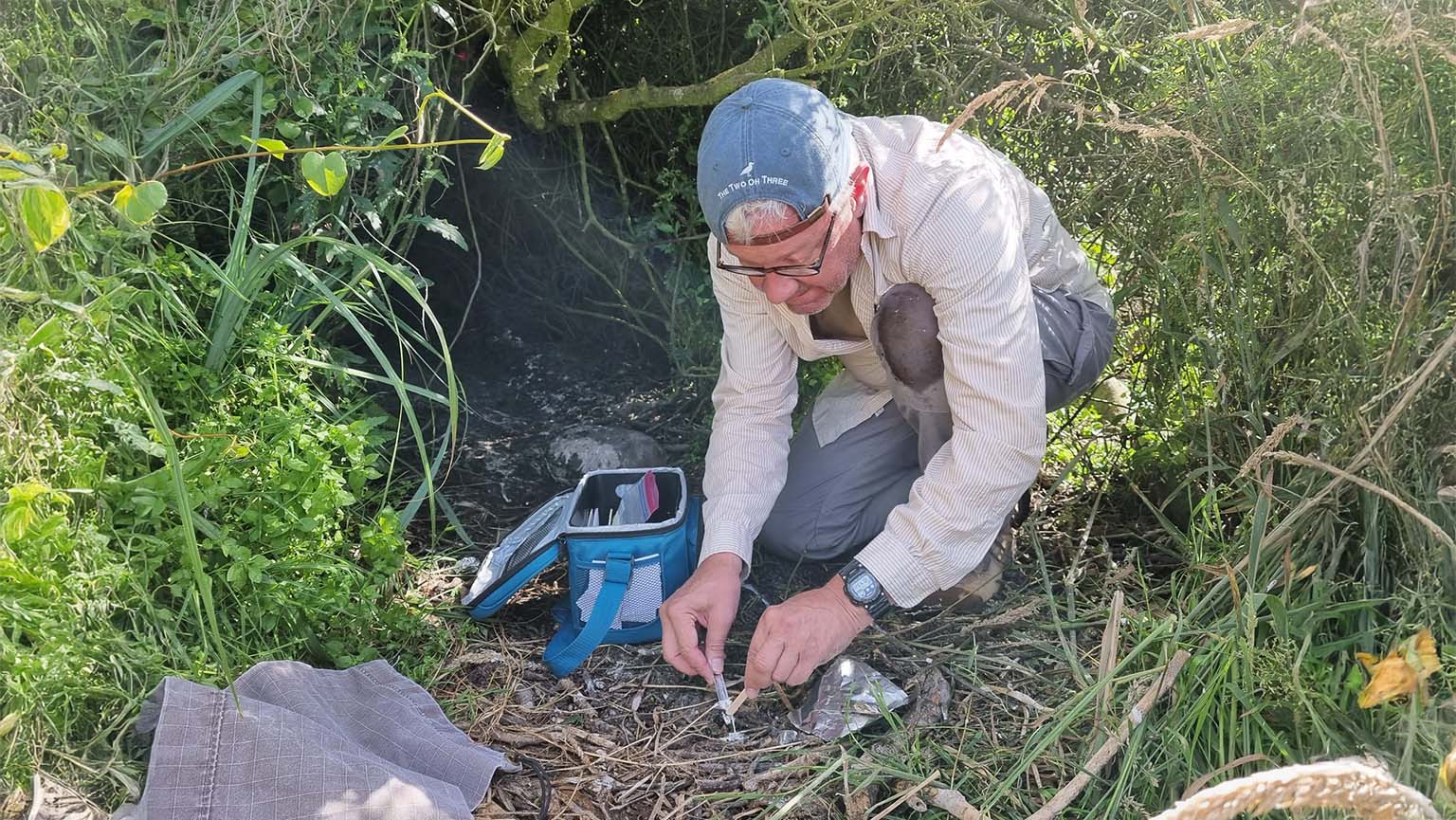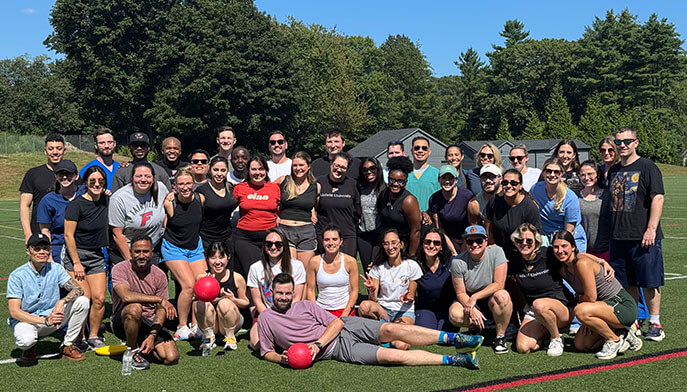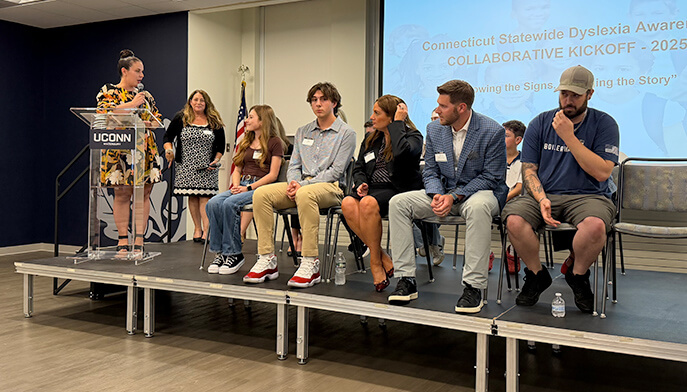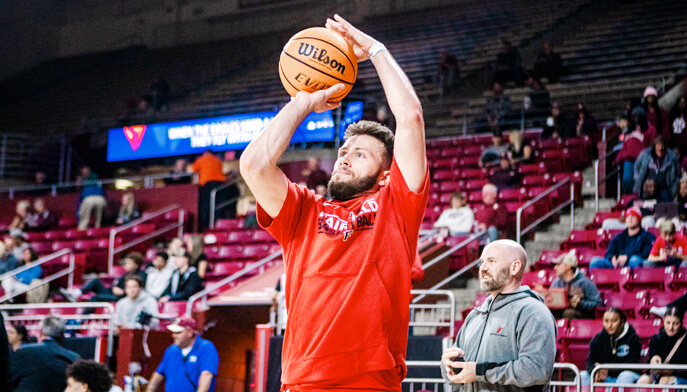Although press coverage and debates about microplastics have been on the rise for years, scientific research on microplastics is still in its infancy.
Through international collaboration, biology professor and Fulbright Global Scholar Brian Walker, PhD, is at the forefront of efforts to standardize the research protocols and methodology necessary to make microplastics research impactful in identifying and addressing health and environmental effects.
Dr. Walker recognized the critical need for standardized research practices, techniques, and protocols while conducting his own studies on the consequences of microplastics. After decades of researching how animals adapt physiologically to environmental changes, the John Charles Meditz College of Arts and Sciences professor began focusing on microplastic exposure in penguins—examining what passes through their systems and how it occurs.
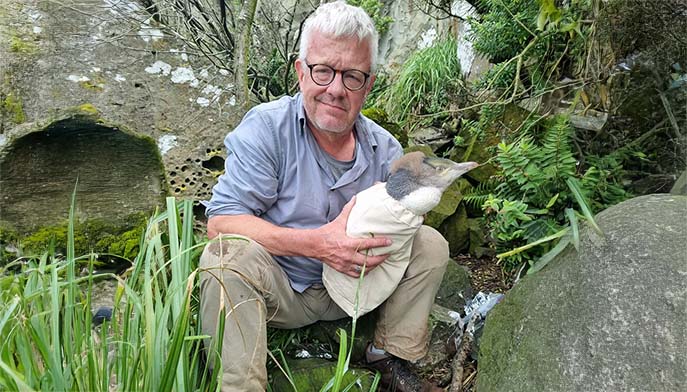
“Given the level of variability we discovered when we were trying to standardize our techniques in the laboratory, it became obvious that it would be important for researchers in different labs to work together and do things in similar ways,” he said. “Then, when different labs start publishing their data, we can make stronger comparisons.”
To that end, Dr. Walker submitted a proposal to the Fulbright Global Scholars program. His acceptance allowed him to travel to three countries, each for two months. In Chile, he collaborated with scientists and a graduate student to collect and analyze samples from Peruvian diving petrels, which live and breed in similar environments to penguins. He then conducted research in New Zealand, collaborating with penguin biologists to study blue- and yellow-eyed penguins.
Dr. Walker completed his Fulbright journey in South Africa, where he worked alongside other penguin biologists and further developed best practices for conducting microplastics research.
To enrich student learning at Fairfield, Dr. Walker has brought samples from around the world back to his Fairfield Meditz lab. There, he provides students with firsthand experience in the research process, from constructing hypotheses to analyzing samples and discussing findings, with the goal of publication.
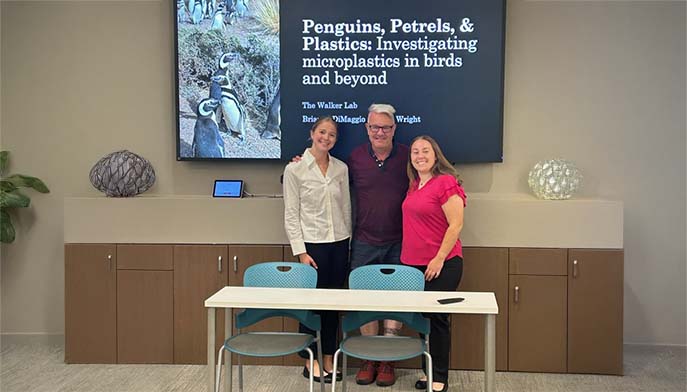
Over six weeks this summer, the penguin biologist mentored two undergraduates as they analyzed samples collected from Magellanic penguins and other wild birds in Argentina and Chile. This essential research was enhanced by an $85,000 microscope, purchased with funds from the Seale Coastal Zone Observatory, a Virginia Tech initiative, as part of a grant to address marine pollution related to microplastics. “Without that microscope,” said Dr. Walker, “our process would be a lot slower and we wouldn’t have been able to do nearly as much as we have.”
Dr. Walker conducts his high-impact research with a goal to better understand the effects of microplastics on humans and to develop effective strategies for addressing them. “Plastics have only been increasing,” he said. “The ability to start to show what those plastics might be causing in us will hopefully be used for conservation reasons and eventually decrease the use of plastics.”
